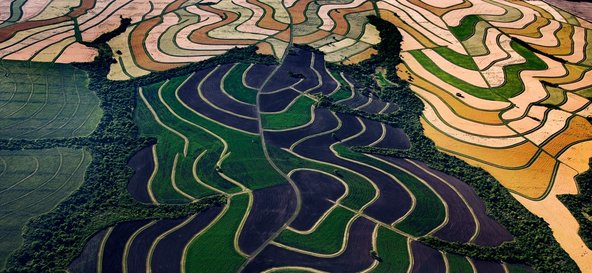Doug Tompkins is the Founder of Esprit and The North Face.
He left the business world behind to ‘create’ Laguna Blanca.
YouTube Added: 29.01.2013
Description:
Organic Farming in Entre Ríos Province, Argentina
– Douglas Tompkins: ‘There Is No Sustainable Business.’ (New York Times, Feb. 25, 2013):
BARCELONA — Sustainable entrepreneurship — a buzzword in an increasingly eco-conscious business world — is often described as a balance between profit and environmental impact.
It’s a subject that Douglas Tompkins seems to have thought a lot about. He founded Esprit and The North Face, two of America’s most iconic clothing and fashion brands, only to quit the business world to become a staunch conservationalist, environmentalist and critic.
“Remove ‘sustainable’ from your dictionary, there is no sustainable business. Only biological sustainability counts,” he told a room full of business students at the IESE business school Doing Great and Doing Good conference on responsible business. (Disclosure: I moderated a panel at the same conference).
“Economic activity has impact and we are just now doing a better job of measuring what those impacts are,” said Mr. Tompkins in an interview.
A strict conservationalist, he rejects the idea that big business can reform itself and thinks the answer lies outside what he calls the “techno-industrial culture.” He thinks measuring biodiversity is a yardstick for how society is doing.
“Healthy biodiversity is at the base of everything,” he said, with species extinction being the ultimate catastrophe. “We’ll be living on a sand heap with a Norwegian rat and a few cockroaches at the end.”
Despite having co-founded ESPRIT, the multinational clothing giant, and The North Face, the maker of outdoor equipment, in the 1960s and having earned millions of the sale of the former, Mr. Tompkins is critical of business’s paradigms.
“We have an economy that’s based on growth without limits,” he said. “How is that possible?”
“To grow and grow and grow without limits is out of the question,” he said.
Even the companies that he is famous for launching do not escape his disapproval.
“My two companies are two monsters now,” he said.
His conversion from fashion to conservation work took place around 1990, however Mr. Tompkins still retains his sense of simple beauty.
“If we just use the aesthetic rule of thumb of saying if it looks bad, it is bad and if it looks good, it – probably – is good,” we’d get a lot further than with arcane and complex economic theories.”
But Mr. Tompkins is much more than an anti-business theorist or a conservation advocate. In the last two decades he and his wife have managed to conserve land that will ultimately enlarge or create national parks in Chile and Argentina.
Mr. Tompkins started his drive toward conservation and reclaiming natural habitat in 1990, right around the time he had sold his share of Esprit for a reported $150 million. (He sold his interest in The North Face much earlier in his career and at a much lower price.)
To date, he and his wife have bought up 1.1 million hectares (or almost 2.5 million acres) in South America, through several of his conservation foundations. The land conserved or in the process of being restored, is open to public use, with conditions, until it is donated to the countries’ national park systems. (My colleague Larry Rohter visited Mr. Tompkins in 2007 and wrote about the political implications of an American buying up so much land in Chile.)
Besides their work restoring land for parks, the Tompkins are developing sustainable farms (he doesn’t like to call it sustainable, just less unsustainable) in both Chile and Argentina.
At Laguna Blanca in northeastern Argentina, the Tompkins have bought and reconstituted land for a sustainable farm project.
Organic crops are planted using small-scale methods not in square plots, as is common in commercial farming, but following the contours of nature. Passages for wildlife are integrated into the fields.
The farm products are then sold to the surrounding community, with profit going toward his conservation efforts.
